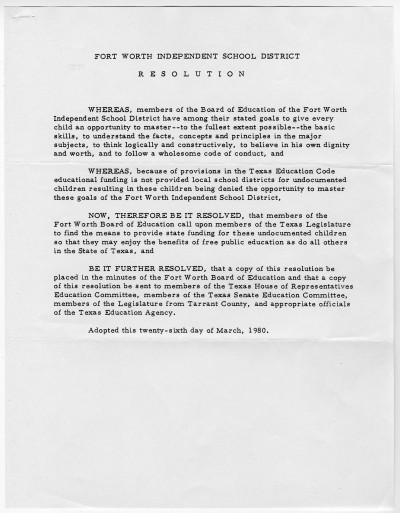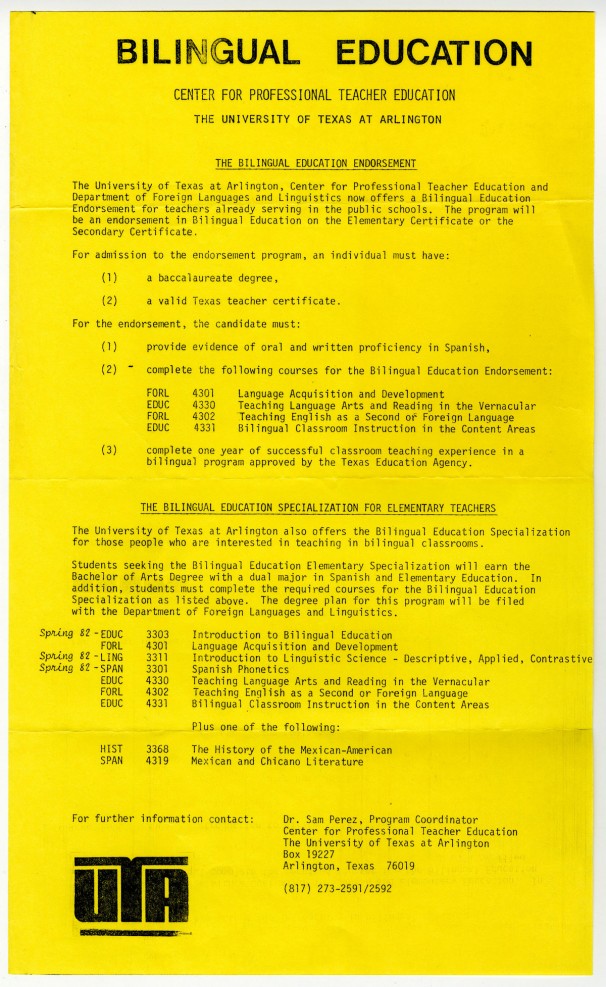“Bilingual” didn’t used to be as cut-and-dry as it is today in America. Whereas Americans in the 18th, 19th, and early 20th centuries often spoke German, Dutch, Italian, or French in addition to English, nowadays if someone is bilingual, it usually means that they speak English and Spanish. When legislators and education agencies talk about bilingual education, they are almost always referring to educating Mexican immigrants in a combination of Spanish and English.
In 1967, the Bilingual Education Act was introduced to the United States Senate by Ralph Yarborough of Texas. The Act passed in 1968 and recommended the teaching of Spanish as a native language, English being taught as a second language, and programs designed to give Spanish-speaking students an appreciation of their ancestral heritage.
 In 1973, Governor Dolph Briscoe signed the Bilingual Education and Training Act into Texas law. The law mandated all elementary public schools with 20 or more enrolled children of limited English ability in a given grade level provide bilingual education. Prior to this, English was the only language allowed in Texas public schools. Children who spoke Spanish in classrooms were often punished. Despite the mandate for school districts to provide bilingual classrooms, state funding for the endeavor was lacking. This letter from the Fort Worth Independent School District to Representative Lanny Hall asks for the state to find funds to help support their bilingual programs.
In 1973, Governor Dolph Briscoe signed the Bilingual Education and Training Act into Texas law. The law mandated all elementary public schools with 20 or more enrolled children of limited English ability in a given grade level provide bilingual education. Prior to this, English was the only language allowed in Texas public schools. Children who spoke Spanish in classrooms were often punished. Despite the mandate for school districts to provide bilingual classrooms, state funding for the endeavor was lacking. This letter from the Fort Worth Independent School District to Representative Lanny Hall asks for the state to find funds to help support their bilingual programs.
One of the biggest problems in getting the law into action was the lack of teachers who were qualified to teach bilingually. As a result, bilingual teacher education programs sprung up all across the state. A description of requirements for a bilingual education endorsement at the University of Texas at Arlington is pictured. When over a quarter of school-aged children return home after school to a Spanish-speaking household, programs like these have been declared vital for student success.
Much more information about the Bilingual Education and Training Act can be found in the Lanny Hall collection, which also contains records pertaining to subjects such as public education, tuition rates and funding for colleges and universities, equal rights and LGBT issues, transportation, and health topics.




Leave a Reply